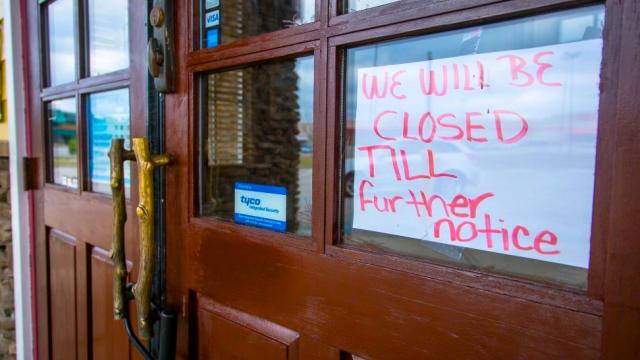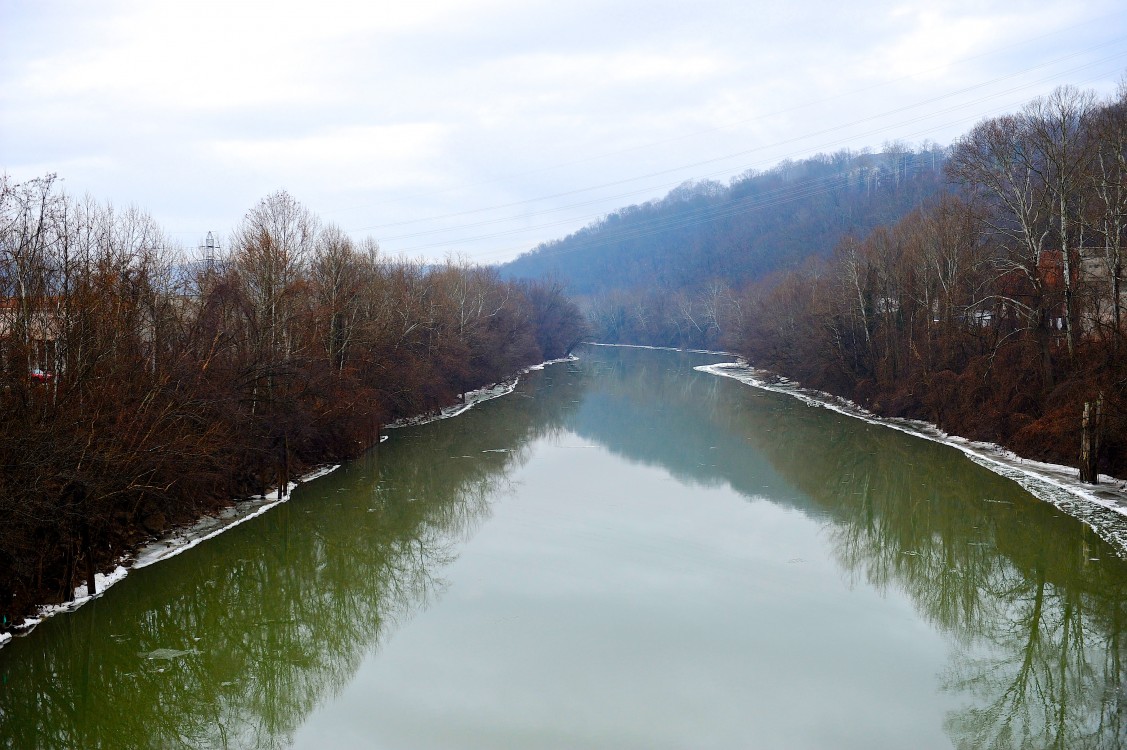
The Dec. 16 indictment of Freedom Industries in West Virginia is the latest example of why in-depth, honest journalism that holds power accountable is so critical to a democratic society.
In January 2014, Freedom Industries spilled chemicals into the Elk River, tainting drinking water for 300,000 people in the most populous area of West Virginia. By February, most of the national media had moved on to other stories, like Chris Christie’s Bridgegate scandal.
However, a few bold news organizations chose to dig a little deeper into the companies behind the spill, spend time with people in affected communities, rake through the muck and stick with the story. Occupy.com was one of those organizations, sending me to West Virginia to write a two-piece series on the spill and its aftermath. Eleven months after the spill, Freedom Industries president Gary Southern and several other executives at the company were finally indicted for violating environmental laws and committing multiple acts of fraud. There would have been no pressure to seek justice were it not for the relentless reporting of dedicated journalists in the weeks and months following the spill.
On Jan. 9, 10,000 gallons of the chemical MCHM, a coal-cleaning agent, along with the chemical PPH and even formaldehyde, which causes cancer, spilled into the Elk River. By Jan. 15, West Virginia American Water had declared the water safe to drink and bathe in (though pregnant women were told to not drink the water). However, when I visited Charleston that week, residents attending a community forum told me they were sticking solely to drinking bottled water and bathing by heating bottled water – filling a plastic bag with a valve and hanging it from their shower spigot. Nobody there trusted the governor or the water officials who said MCHM levels were low enough to be negligible, especially since water from the faucet still had the signature licorice-like smell of MCHM.
National reporters made sure to get images of people lining up for water and capture the bewildered expressions of Gary Southern at a press conference when he tried to duck out early. When the water bans were lifted, the West Virginia water crisis ceased to be breaking news, and the national media was content to let America forget about the story. This made the remaining journalists' jobs that much harder, especially considering that these muckrakers were going up against the coal industry, their bought politicians, and an audience that was wholly on coal's side.
Honest Journalism Meets the Corporate State and a Skeptic Public
One week after the spill occurred, residents of Van, West Virginia, a small town of roughly 200 people an hour’s drive from Charleston, had their water ban lifted and residents were instructed to flush their hot and cold water systems for 15 minutes and 5 minutes, respectively. On Jan. 16, I knocked on the door of Van resident Richard Bishop, who was in the middle of feeding his many cats while his water was running in the kitchen. (When one of them climbed on my lap during our interview, Bishop reached over and tossed the cat to the other side of the couch, yelling “git!”)
Like a lot of other West Virginians, Bishop came from a family of coal industry workers and had worked in industry-related jobs for most of his professional life. Even though coal chemicals caused the most recent water crisis, and even though Bishop told me about a similar spill that tainted Van’s drinking water just four months prior, he didn’t fault the coal industry for the nearly-constant toxic state of his water. Rather, Bishop blamed the Environmental Protection Agency’s regulations on the coal industry, saying that requiring coal to be cleaned with MCHM would have inevitably led to an MCHM spill in water supplies sooner or later.
Bishop’s skepticism about the effectiveness of federal regulation of the coal industry is an endemic feature of West Virginia’s pro-coal culture, which made the West Virginia media’s consistent coverage of the spill and its aftermath that much more remarkable. West Virginia’s political establishment is largely funded by the coal industry and coddles the coal industry as a result, making accountability for environmental disasters a pipe dream. West Virginia’s politicians regularly drum up animosity against the federal government’s regulatory agencies in stump speeches every campaign season – for example, Gov. Earl Ray Tomblin announced a “Rally for Coal” in response to new EPA regulations on mountaintop removal mining.
Because coal mining is such a staple of West Virginia’s culture, any candidate for public office who endorses environmentalist policies will be unable to raise enough money or support to be effective. Because an anti-environmental platform is a prerequisite to win office, coal-related spills and other disasters are often overlooked by government officials who want to be re-elected. Thus, criminal prosecution for polluters becomes an impossibility without independent voices shedding light on new developments. This is why quality investigative journalism was especially needed in West Virginia after the Elk River spill.
Investigative Journalists Create a Case for the Feds
After the national media left West Virginia, one of the local outlets that looked deeper into Freedom Industries was the Charleston Gazette. Ken Ward, Jr. reported that Freedom knew in October 2013, three months before the spill occurred, that the storage tanks which contained the MCHM, as well as the facility’s drainage system, didn’t meet industry or federal standards. Kate White, also of the Charleston Gazette, wrote in-depth reports on Freedom Industries’ chapter 11 bankruptcy, which allowed them to dodge almost two dozen lawsuits from 20 different creditors.
White also broke the story of Freedom owner J. Clifford Forrest forming apparent shell corporations eight days after the spill – strategically set up so that Freedom could effectively lend money to itself through separate legal entities. And the Gazette’s David Gutman reported on Freedom’s long history of criminal activity, as its founder, Carl Kennedy, was convicted of tax evasion and willful failure to pay $1 million in employee tax withholdings.
In the 37-page federal grand jury indictment handed down to Freedom executives Dennis Farrell, William Tis, Charles Herzing and Gary Southern on Dec. 16, many of the issues that committed journalists unearthed in the weeks and months following the spill are listed in the charges. In the charges relating to violating the Clean Water Act, the indictment cites examples of neglecting to maintain the MCHM storage tanks and drainage infrastructure at federal and industry standards. While Farrell, Tis, and Herzing each face three years for their role in the spill, Gary Southern could face 68 years in jail if convicted of all of his charges. In addition to environmental charges, Southern was also charged with bankruptcy fraud, wire fraud and lying under oath in relation to Freedom’s sudden bankruptcy.
The moral of the story? In today’s corrupt and vapid media world, there are still plenty of journalists who won't stop short of digging deep on the corporations behind the degradation of public resources, and providing answers that lead to real justice. This is how proper journalism works.
3 WAYS TO SHOW YOUR SUPPORT
- Log in to post comments

















